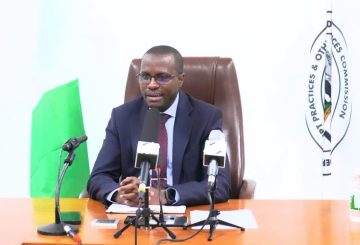In the aftermath of Sunday’s election, despite the absence of official results, the former prime minister, supported by incumbent President Macky Sall, graciously conceded defeat based on preliminary data. Subsequently, President Sall extended congratulations to Faye, affirming his victory.
Bassirou Diomaye Faye’s ascendancy mirrors the frustrations felt by the younger demographic grappling with unemployment and governance issues in Senegal. In his inaugural address as president-elect, Faye, a former tax inspector, pledged a new beginning, vowing to address the recent tumult and political detentions leading up to the election. He reiterated his commitment to governing with transparency, humility, and an uncompromising stance against corruption, echoing the promises of his campaign.
Backed by the influential opposition leader Ousmane Sonko, Faye has vowed to enhance Senegal’s sovereignty over its natural resources, advocating for the empowerment of national enterprises to forestall what he terms as “economic enslavement.” Although standing in place of his ally Sonko, who was ineligible due to a prior conviction, Faye garnered significant support.

Originating from a modest background in central Senegal, Faye, a devout Muslim with two spouses, emerged as an unexpected contender, propelled into the limelight by Sonko’s endorsement. Despite his relative anonymity, Faye’s integrity and transparency shone through as he publicly disclosed his assets before the election.
Despite facing legal challenges, including imprisonment on various charges, Faye’s journey from incarceration to the presidential palace symbolizes Senegal’s resilience in upholding democratic values despite a turbulent year that tested the populace’s faith in the system.
Internationally, Faye’s victory signals a departure from months of unrest, yet poses questions about the new government’s foreign policy direction, particularly amid Senegal’s burgeoning oil and gas industry. Faye has already outlined reform initiatives for regional blocs like ECOWAS, hinting at potential shifts away from former colonial influences, which could redefine Senegal’s diplomatic stance.
Celebrations erupted across Senegal as Faye’s victory was announced, reflecting a peaceful and decisive electoral process. With a significant voter turnout and a clear mandate, Faye’s presidency represents Senegal’s fourth democratic transition since gaining independence, underscoring the nation’s enduring commitment to democratic principles.





